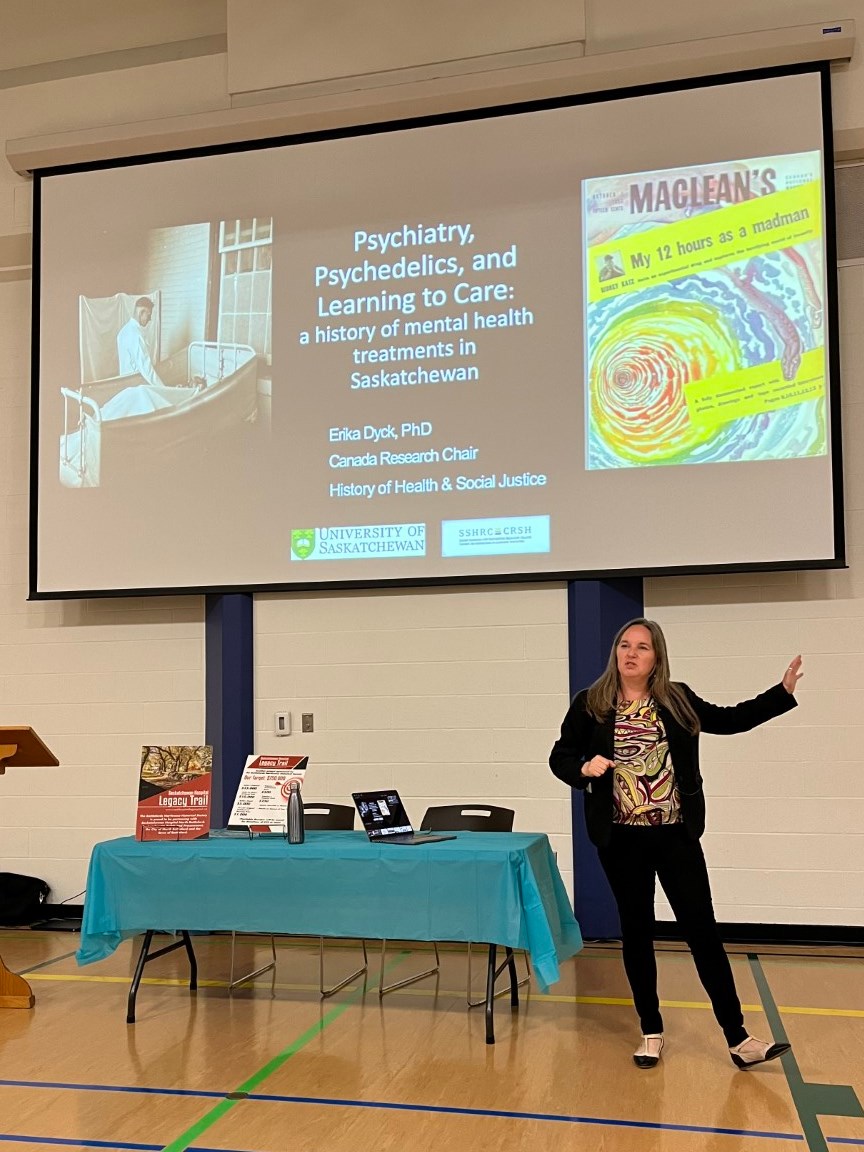NORTH BATTLEFORD — The history of mental health treatment and approaches to youth resiliency were the focus of a Legacy Trail Learning Forum held at Saskatchewan Hospital May 8 in recognition of Canadian Mental Health Week.
The Battlefords Northwest Historical Society is fundraising to build the Saskatchewan Hospital Legacy Trail which will acknowledge the history and more than 100 years of caring of the original hospital. The Legacy Trail project is partnered with Canadian Mental Health – Battlefords and the Saskatchewan Hospital.
More than 90 people attended one of the two learning forums offered. In each of the forums Dr. Erika Dyck, University of Saskatchewan Professor and the Canada Research Chair in the History of Medicine shared the fascinating history of mental health care and the unique position Saskatchewan played in seeking alternative treatments.
Dr. Nathan Pyle and Alan Corbeil work together at Child and Youth Addiction Services and provided current research on youth resiliency and strategies to develop empathy and to navigate and overcome challenges. The importance of unstructured play in the development of resilient children and how play provides the opportunity for children and youth to develop skills that help them deal with uncertainty and stress were also discussed.
Compassion, the theme of Canadian Mental Health Week, has been the centre of mental health treatment as Dr. Dyck outlined as she described Saskatchewan’s role at the forefront of treatment methods. During the 1950s Saskatchewan Hospital Weyburn and North Battleford led the world in research into psychedelics which were halted in the 1960s when the counterculture embraced the drugs resulting in restrictive legislation. More recently psychedelics have received recognition and a resurgence of research into their therapeutic benefit in the treatment of mental illnesses.
Dr. Dyck also described her research into ancient and Indigenous uses of plants for healing and spiritual purposes and an important ceremony that occurred in North Battleford that resulted in a change in legislation.




